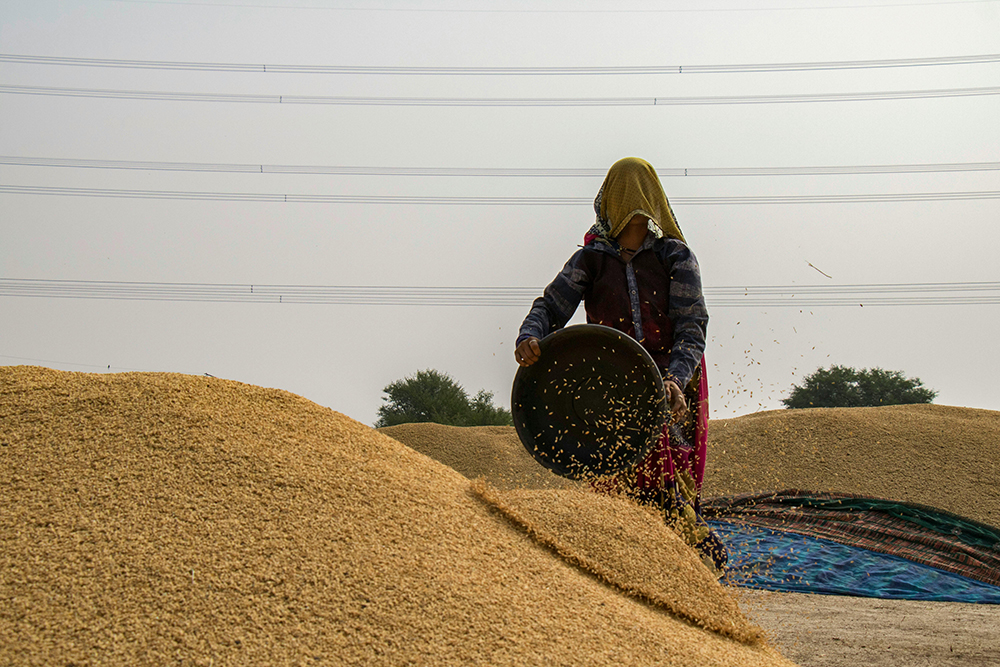
NRI Director, Prof. Sheryl Hendriks is co-author of an influential new report that establishes a baseline for tracking the performance of food systems across the world. The report highlights the urgent need for improvements in global food systems and potential for shared learning.
"The state of food systems worldwide in the countdown to 2030", published today by The Food Systems Countdown to 2030 Initiative (FSCI), provides the first science-based monitoring to guide decision-makers as they seek holistic transformation of the global agriculture and food systems. This transformation is urgently needed both to address the environmental impact of these systems and to mitigate the impact of climate change on them. The primary goal is to ensure universal and equitable access—especially for the most vulnerable—to healthy diets through sustainable and resilient agriculture and food systems.
The UN Food Systems Summit catalysed agriculture and food system action. The summit initially held on 23 September 2021 in New York stage for global food systems transformation to achieve the Sustainable Development Goals (SDGs) by 2030. However, policymakers often lack the data required to drive critical decisions. The FSCI is filling this critical gap. The initiative has identified an indicator framework composed of 50 indicators that monitor agriculture and food systems at a global level, using existing data to enable immediate action. Repurposing existing data, rather than conducting time-consuming new research, means policymakers have quick access to relevant information.
Agriculture and food systems are central to meeting all 17 SDGs, yet the SDGs are insufficient to monitor these systems. Following this first global baseline, the FSCI will track agriculture and food systems annually until 2030, updating the framework as needed where new indicators or better data emerge.
Dr Lawrence Haddad, Executive Director, Global Alliance for Improved Nutrition (GAIN), said: ‘The first annual Countdown report shows that no single region has all the answers. Europe and North America do well on undernutrition but poorly on indicators of unhealthy diets. In contrast, Africa and South Asia do relatively well on some environmental indicators but poorly on indicators of livelihoods. The data show very clearly that every region has significant room for improvement.’ Lawrence is also one of the co-chairs of the FSCI.
Prof Sheryl Hendriks reiterated the importance of having a set of universal indicators to monitor food system transformation. ‘If we do not closely monitor the direction of change, we could see food system transformations heading in the wrong direction. Rapid and unchecked food system changes could erode sustainability and lead to mass-produced industrial foods that increase environmental degradation and pollution and undermine human health’.
The state of food systems worldwide in the countdown to 2030 report organises agriculture and food systems monitoring into five themes. These include diets, nutrition and health; environment, natural resources and production; livelihoods, poverty and equity; governance; and resilience. Each theme contains three-to-five indicator domains that together provide a comprehensive picture of agriculture and food systems.
 Food systems and agricultural transformation are necessary for the world to meet the Paris Agreement target to limit global temperature increase to well below 2°C above pre-industrial levels. Yet despite agriculture accounting for a third of global greenhouse gas emissions, this is still an emerging conversation. Agriculture and food systems only played a small part in climate negotiations at COP27. The Emirates Declaration on Sustainable Agriculture, Resilient Food Systems, and Climate Action reached at COP28 in Dubai marks a coming of age for a sector historically neglected in the COP negotiations. The agreement saw over 150 countries commit to incorporate agriculture and food systems into their climate plans by 2025.
Food systems and agricultural transformation are necessary for the world to meet the Paris Agreement target to limit global temperature increase to well below 2°C above pre-industrial levels. Yet despite agriculture accounting for a third of global greenhouse gas emissions, this is still an emerging conversation. Agriculture and food systems only played a small part in climate negotiations at COP27. The Emirates Declaration on Sustainable Agriculture, Resilient Food Systems, and Climate Action reached at COP28 in Dubai marks a coming of age for a sector historically neglected in the COP negotiations. The agreement saw over 150 countries commit to incorporate agriculture and food systems into their climate plans by 2025.
Jessica Fanzo, Professor of Climate and Director of the Food for Humanity Initiative, Columbia Climate School said: ‘There is a growing urgency to transform agriculture and food systems to support healthy diets in sustainable and equitable ways, and to protect the environment. Our research sets the stage for a data-driven approach to address the challenges and seize the opportunities to create a healthier, more equitable and sustainable future for all.’

